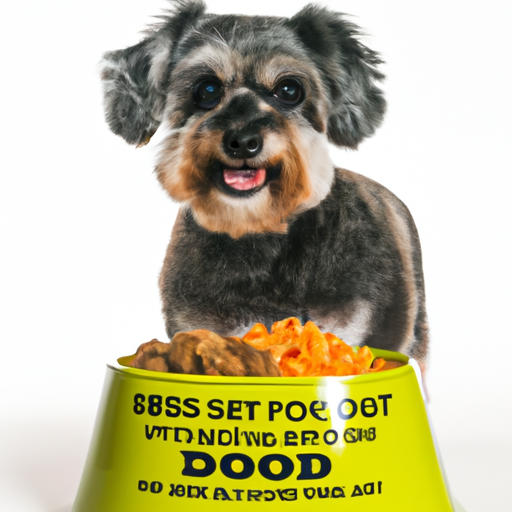As a caregiver, you always want what’s best for those under your care. And if those under your care include small dogs, you’d want to ensure they have the best diet possible. So, let’s delve into what makes the best dog food for your pint-sized pooch!
H2: Understanding Your Small Dog’s Nutritional Needs
Small dogs have unique dietary needs compared to their larger counterparts. Their high energy levels and metabolic rates mean they require calorie-dense foods. They also need the right balance of proteins, fats, and carbohydrates.
Let’s break this down:
- Protein: This is crucial for all dogs, but more so for small breeds. They need a diet rich in high-quality proteins for muscle development and maintenance.
- Fats: Small dogs need a higher fat content in their diet. Fats provide them with the energy they need to keep up with their active lifestyle.
- Carbohydrates: Small dogs do well with a moderate amount of carbohydrates. They provide necessary energy and keep their digestive systems working properly.
H2: The Importance of Kibble Size and Texture
When it comes to feeding small dogs, size does matter. Small breeds have tinier mouths, so the size and texture of the kibble can make a significant difference in their eating experience.
Here are some factors to consider:
- Size: Small kibble is easier for small breeds to chew and swallow.
- Shape: Some small dogs prefer certain kibble shapes over others. Experiment with different shapes to find what your dog likes best.
- Texture: Some dogs prefer crunchy kibble, while others prefer softer textures. It’s also worth noting that crunchy kibble can help keep your dog’s teeth clean.
H2: Choosing the Right Dog Food Brand
There’s an overwhelming number of dog food brands in the market, each claiming to be the best. When choosing the right brand, focus on those that prioritize high-quality, natural ingredients. Avoid brands that use fillers, artificial colors, flavors, or preservatives.
Here are a few recommended brands for small dogs:
| Brand | Key Benefits |
|---|---|
| Blue Buffalo Life Protection Small Breed | High in protein and fat |
| Wellness CORE Small Breed | Grain-free, high protein |
| Nutro Wholesome Essentials Small Breed | Non-GMO ingredients |
H2: Adjusting to Your Dog’s Age and Health
As your dog ages, their nutritional needs will change. Puppies need calorie-dense food for growth, while senior dogs may need lower-calorie food to maintain a healthy weight. Dogs with certain health issues may also require specialized diets. Always consult with your vet to determine the best diet for your dog’s age and health status.
H2: Frequently Asked Questions (FAQs)
Q: Can I feed my small dog large breed dog food?
A: It’s not recommended. Small dogs have different nutritional needs and may struggle to eat larger kibble sizes.
Q: How often should I feed my small dog?
A: Typically, small dogs should be fed 3-4 times per day.
Q: Can small dogs eat grain-free food?
A: Yes, they can. However, always consult with your vet to ensure it’s suitable for your dog’s specific needs.
In conclusion, the best dog food for small dogs depends on their nutritional requirements, kibble preference, the quality of the brand, and their age and health. As their caregiver, your role is to ensure they get the best possible nourishment to lead a happy, healthy life.



